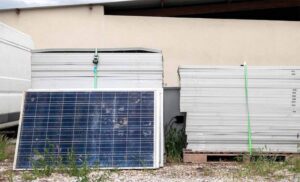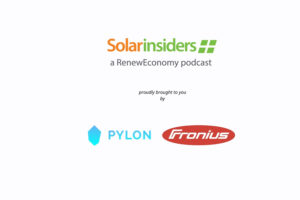Australia’s rooftop solar industry is bracing for a major regulatory overhaul, including on how companies and equipment qualify for the remainder of the national rebate scheme.
The long-awaited findings of the Integrity Review of the Rooftop Solar PV Sector, which was commissioned by federal energy minister Angus Taylor in mid-2020 in such a rush that he set a strict timeframe of six to eight weeks, were finally published by the Clean Energy Regulator on Thursday nearly a year after completion.
The 63-page report makes 13 recommendations, the crux of of which would see a transfer of power from the Clean Energy Council to the Clean Energy Regulator, wherein the CER becomes the sole regulator, replacing a co-regulation system led by the Clean Energy Council.
This would give the CER full responsibility for determining and regulating which retailers, installers and component manufacturers are eligible to participate in the federal Small-scale Renewable Energy Scheme – the federal government’s nationwide rooftop solar subsidy that will end in 2030.
Similarly, the CER would also take over the responsibility for setting the rules for listing key solar PV components – including panels, batteries and inverters – as eligible for Commonwealth entitlements in the form of small-scale technology certificates, or STCs.
As part of this role, the report proposes a number of measures to tighten eligibility criteria for accredited installers, including a new obligation for installers to prove they were onsite during the installation.
The report also pushes for increased accountability for solar PV retailers, who would be actively policed by the CER, with poor performing retailers under threat of being publicly listed as ineligible to sell PV systems supported by the SRES. Increased sampling and testing of equipment eligible under the SRES is also proposed.
Currently, the creation of STCs for rooftop solar PV systems require a CEC accredited installer to conduct the installation and fulfil their obligations under CEC guidelines.
A key feature of those guidelines is that an accredited installer must be present at the start, middle and end of an installation. The guidelines also state an installer may carry out a maximum of two installations per day.
The review found that – while the CEC had “undertaken its regulatory roles diligently over a long period” – it was difficult for it to undertake effective enforcement against accredited parties found doing the wrong thing without the statutory investigation powers of a Commonwealth regulator.
“As its primary role is as an industry representative body, it doesn’t have all the investigative, intelligence and in-house litigation capability of a regulator,” the report said.
“There may be the perception of a conflict of interest with an industry body trying to take enforcement action against parties who may be its members.
“A single regulator with the typical statutory powers and capability of a Commonwealth Regulator will be a stronger deterrent to non-compliant behaviour and enable more effective enforcement,” the report continued.
“This position was supported by the majority of stakeholders engaged with during the review. There were varying views about whether better to have singular body or multiple bodies,” it added.
Indeed, according to the report, industry bodies and participants consulted over the course of the review were said to have expressed concerns that the CEC may be conflicted in its enforcement roles as a co-regulator and industry advocate.
Others, the report added, expressed concerns that the CEC may have achieved a monopoly position for itself through its SRES regulatory roles in addition to its voluntary retailer code and industry representative role.
On the consumer side, the report noted that the currently co-regulatory roles shared between the CEC and the CER could be confusing to consumers, leaving them unsure where to turn for guidance and advice on choosing accredited providers or for lodging complaints.
The report also recommended that the federal government consider mechanisms to boost the CER’s powers to take administrative and compliance action against installers and manufacturers who don’t follow the rules, to better deter “dodgy” practices and therefore better protect consumers.
This is partly where the nearly $20 million in federal funding will be focused, according to Taylor, including on the enhancement of the CER’s business systems to support greater use of technology, to reduce regulatory burden for industry while also improving compliance.
Federal funds would also be used to develop an online tool to “empower consumers” with more information to help them find the solar system that is right for them, and to avoid “dishonest” operators.
“The enhanced regulatory arrangements recommended through the Review will help ensure that rooftop solar PV systems installed under the SRES are consistent with the value of the incentive paid under the scheme and with consumers’ expectations,” said Taylor in a statement.
“The recommended reforms will also ensure that any solar installers, retailers and manufacturers who are found to be doing the wrong thing can be held to account.”
The industry response to the report and its key recommendations has been broadly positive, so far – although there is much to be digested, not least on the logistics of some of the more major changes, and how they might impact business-as-usual for solar retailers and installers already accredited through the CEC.
Even the CEC was graciously accepting of the findings – although the report notes that the CEC “expressed the view that it should keep [the regulatory] role given the capability it has built and its view that its services are valued by installers and manufacturers.”
In a statement on Thursday, CEC chief Kane Thornton – who is given special mention in the CER report for his “open and productive” cooperation throughout – said it was “appropriate to continually reflect and improve the regulatory framework to ensure industry integrity and proper oversight.
“We welcome the greater role for the CER to leverage the compliance and enforcement tools of a Commonwealth agency to crack down on the worst behaviours in the industry,” Thornton said.
“A more active approach to regulation and compliance from the Commonwealth government is a good step forward and the industry looks forward to working closely with the CER to refine the regulatory framework for the sector.
Thornton noted, though, that the solar industry had already begun acting on a number of the CER’s recommendations, including the requirement for installers to be on-site during installations, and increased training and awareness about the expectations on installers.
“The Clean Energy Council is committed to continually raising the bar, improving standards and driving the few dodgy players out of the industry,” he said.
“This includes advocating for further regulatory reform such as cracking down on phoenixing in the solar industry, creating a national electrical safety body and the introduction of nationally consistent inspection regimes.”
Fellow industry body, the Smart Energy Council, was also welcoming of the report’s findings.
“The Smart Energy Council has long called for a single regulator for the Small-scale Renewable Energy Scheme,” said SEC chief John Grimes in an emailed statement.
“The Smart Energy Council broadly supports the proposed changes, which will be subject to further consultation before being introduced as changes to Regulations in 2022.”
The National Electrical and Communications Association said in its own statement that the findings of the review would make solar installations safer for consumers and allow licenced electrical contractors to compete on a level playing field.
“This is good news for the vast majority of installers, retailers and manufacturers that make up the solar industry and do high-quality, safe work,” said Carl Copeland, branch secretary for NECA WA, who led the organisation’s national response to the review.
“NECA urges the federal government to implement the recommended changes as soon as possible, which will strengthen the industry and means a brighter, safer future for solar.”
How quickly the recommendations are impelemented remains to be seen. Taylor said on Thursday that government would consult on corresponding regulatory changes to the SRES framework in the second half of 2021. This feedback would assist in making a final decision on the detail and implementation of the changes, he said.







